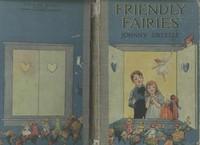|
|
Read this ebook for free! No credit card needed, absolutely nothing to pay.Words: 77623 in 21 pages
This is an ebook sharing website. You can read the uploaded ebooks for free here. No credit cards needed, nothing to pay. If you want to own a digital copy of the ebook, or want to read offline with your favorite ebook-reader, then you can choose to buy and download the ebook.

: The Lake by Moore George - Ireland Fiction; Unmarried mothers Fiction; Spiritual life Fiction; Priests Ireland Fiction; Catholic Church Ireland Clergy Fiction; Nature Psychological aspects Fiction@FreeBooksTue 06 Jun, 2023 THE LAKE BY GEORGE MOORE LONDON: WILLIAM HEINEMANN ?P?TRE D?DICATOIRE MON CHER DUJARDIN, A Valvins, la Seine coule silencieusement tout le long des berges plates et graciles, avec des peupliers align?s; comme ils sont tristes au printemps, ces peupliers, surtout avant qu'ils ne deviennent verts, quand ils sont rouge?tres, pos?s contre un ciel gris, des ombres immobiles et ternes dans les eaux, dix fois tristes quand les hirondelles volent bas! Pour expliquer la tristesse de ce beau pays parsem? de ch?teaux vides, hant? par le souvenir des f?tes d'autrefois, il faudrait tout un orchestre. Je l'entends d'abord sur les violons; plus tard on ajouterait d'autres instruments, des cors sans doute; mais pour rendre la tristesse de mon pauvre pays l? bas il ne faut drait pas tout cela. Je l'entends tr?s bien sur une seule flute plac?e dans une ?le entour?e des eaux d'un lac, le joueur assis sur les vagues ruines d'un r?duit gallois ou bien Normand. Mais, cher ami, vous ?tes Normand et peut-?tre bien que ce sent vos anc?tres qui out pill? mon pays; c'est une raison de plus pour que je vous offre ce roman. Acceptez-le sans le conna?tre davantage et n'essayez pas de le lire; ne vous donnez pas la peine d'apprendre l'anglais pour lire 'Le Lac'; que le lac ne soit jamais travers? par vous! Et parce que vous allez rester fatalement sur le bord de 'mon lac' j'ai un double plaisir ? vous le d?dier. Lorsqu'on d?die un livre, on pr?voit l'heure o? l'ami le prend, jette un coup d'oeil et dit: 'Pourquoi m'a-t-il d?di? une niaiserie pareille?' Toutes les choses de l'esprit, sauf les plus grandes, deviennent niaiseries t?t ou tard. Votre ignorance de ma langue m'?pargne cette heure fatale. Pour vous, mon livre sera toujours une belle et noble chose. Il ne peut jamais devenir pour vous banal comme une ?pouse. II sera pour vous une vierge, mieux qu'une vierge, il sera pour vous une demi-vierge. Chaque fois que vous l'ouvrirez, vous penserez ? des ann?es ?coul?es, au jardin o? les rossignols chantent, a la for?t o? rien ne se passe sauf la chute des feuilles, ? nos promenades ? Valvins pour voir le cher bonhomme; vous penserez ? votre jeunesse et peut-?tre un peu ? la mienne. Mais je veux que vous lisiez cette d?dicace, et c'est pour cela que je l'ai ?crite en fran?ais, dans un fran?ais qui vous est tr?s familier, le mien. Si je l'?crivais en anglais et le faisais traduire dans le langage ? la derni?re mode de Paris, vous ne retrouveriez pas les accents barbares de votre vieil ami. Ils sont barbares, je le con?ois, mais il y a des chiens qui sont laids et que l'on finit par aimer. Une poign?e de mains, GEORGES MOORE. PREFACE The concern of this preface is with the mistake that was made when 'The Lake' was excluded from the volume entitled 'The Untilled Field,' reducing it to too slight dimensions, for bulk counts; and 'The Lake,' too, in being published in a separate volume lost a great deal in range and power, and criticism was baffled by the division of stories written at the same time and coming out of the same happy inspiration, one that could hardly fail to beget stories in the mind of anybody prone to narrative--the return of a man to his native land, to its people, to memories hidden for years, forgotten, but which rose suddenly out of the darkness, like water out of the earth when a spring is tapped. Some chance words passing between John Eglinton and me as we returned home one evening from Professor Dowden's were enough. He spoke, or I spoke, of a volume of Irish stories; Tourgu?niev's name was mentioned, and next morning--if not the next morning, certainly not later than a few mornings after--I was writing 'Homesickness,' while the story of 'The Exile' was taking shape in my mind. 'The Exile' was followed by a series of four stories, a sort of village odyssey. 'A Letter to Rome' is as good as these and as typical of my country. 'So on He Fares' is the one that, perhaps, out of the whole volume I like the best, always excepting 'The Lake,' which, alas, was not included, but which belongs so strictly to the aforesaid stories that my memory includes it in the volume. In expressing preferences I am transgressing an established rule of literary conduct, which ordains that an author must always speak of his own work with downcast eyes, excusing its existence on the ground of his own incapacity. All the same an author's preferences interest his readers, and having transgressed by telling that these Irish stories lie very near to my heart, I will proceed a little further into literary sin, confessing that my reason for liking 'The Lake' is related to the very great difficulty of the telling, for the one vital event in the priest's life befell him before the story opens, and to keep the story in the key in which it was conceived, it was necessary to recount the priest's life during the course of his walk by the shores of a lake, weaving his memories continually, without losing sight, however, of the long, winding, mere-like lake, wooded to its shores, with hills appearing and disappearing into mist and distance. The difficulty overcome is a joy to the artist, for in his conquest over the material he draws nigh to his idea, and in this book mine was the essential rather than the daily life of the priest, and as I read for this edition I seemed to hear it. The drama passes within the priest's soul; it is tied and untied by the flux and reflux of sentiments, inherent in and proper to his nature, and the weaving of a story out of the soul substance without ever seeking the aid of external circumstance seems to me a little triumph. It may be that I heard what none other will hear, not through his own fault but through mine, and it may be that all ears are not tuned, or are too indifferent or indolent to listen; it is easier to hear 'Esther Waters' and to watch her struggles for her child's life than to hear the mysterious warble, soft as lake water, that abides in the heart. But I think there will always be a few who will agree with me that there is as much life in 'The Lake,' as there is in 'Esther Waters'--a different kind of life, not so wide a life, perhaps, but what counts in art is not width but depth. Artists, it is said, are not good judges of their own works, and for that reason, and other reasons, maybe, it is considered to be unbecoming for a writer to praise himself. So to make atonement for the sins I have committed in this preface, I will confess to very little admiration for 'Evelyn Innes' and 'Sister Teresa.' The writing of 'Evelyn Innes' and 'Sister Teresa' was useful to me inasmuch that if I had not written them I could not have written 'The Lake' or 'The Brook Kerith.' It seems ungrateful, therefore, to refuse to allow two of my most successful books into the canon merely because they do not correspond with my aestheticism. But a writer's aestheticism is his all; he cannot surrender it, for his art is dependent upon it, and the single concession he can make is that if an overwhelming demand should arise for these books when he is among the gone--a storm before which the reed must bend--the publisher shall be permitted to print 'Evelyn Innes' and 'Sister Teresa' from the original editions, it being, however, clearly understood that they are offered to the public only as apocrypha. But this permission must not be understood to extend to certain books on which my name appears--viz., 'Mike Fletcher,' 'Vain Fortune,' Parnell and His Island'; to some plays, 'Martin Luther,' 'The Strike at Arlingford,' 'The Bending of the Boughs'; to a couple of volumes of verse entitled 'Pagan Poems' and 'Flowers of Passion'--all these books, if they are ever reprinted again, should be issued as the work of a disciple--Amico Moorini I put forward as a suggestion. Free books android app tbrJar TBR JAR Read Free books online gutenberg More posts by @FreeBooks
: Vain Fortune: A Novel by Moore George Greiffenhagen Maurice Illustrator - Inheritance and succession Fiction; Young women Fiction; Triangles (Interpersonal relations) Fiction; Dramatists Fiction; Unrequited love Fiction@FreeBooksTue 06 Jun, 2023

: Diario de la navegacion empredida en 1781 Desde el Rio Negro para reconocer la Bahia de Todos los Santos las Islas del Buen Suceso y el desague del Rio Colorado by Villarino Basilio - Argentina Discovery and exploration Argentina@FreeBooksTue 06 Jun, 2023
|
Terms of Use Stock Market News! © gutenberg.org.in2025 All Rights reserved.






